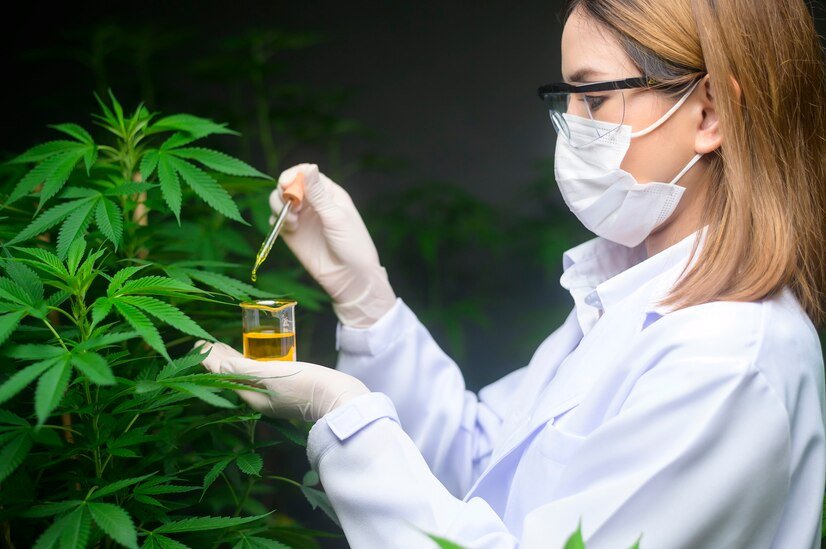CBD
“Unlocking the Healing Properties of THCA Weed: A Guide to Its Benefits and Effects”
THCA Weed

In a world where cannabis products are on the rise, there’s one cannabinoid that’s garnering increasing attention for its therapeutic potential—THCA. Tetrahydrocannabinolic acid (THCA) is a non-psychoactive compound found in the trichomes of raw cannabis, predominantly in the leaves and flowers. When cannabis is heated or aged, THCA converts to the more well-known THC, the psychoactive compound that contributes to the ‘high’ often associated with marijuana use.
Contrary to THC, which is famous for its euphoric and mind-altering effects, THCA stands out for its potential health benefits. But what exactly is it, and how can it be of therapeutic use? This comprehensive guide will walk you through the healing properties of thca weed and its potential impact on various health conditions. We’ll also explore how to consume THCA safely, and what the future holds for this promising cannabinoid.
What is THCA and How Does it Differ from THC?
THCA is the precursor to THC and is found in high concentrations in the living cannabis plant. This means that it’s what THC was before any decarboxylation (the process that converts THCA to THC, which happens with heat and time). When you smoke, vaporize, or cook cannabis, you’re converting THCA to THC.
But keeping cannabis raw preserves THCA, which is of particular interest to those seeking the benefits of cannabis without the ‘high’ that comes with THC. THCA is believed to have its own unique set of benefits that are quite different from its converted form, including anti-inflammatory properties and benefits for the immune system.
What Are the Health Benefits of THCA?
Anti-Inflammatory Effects and Pain Management
Inflammation is the body’s natural response to injury, but chronic inflammation can lead to various health issues, including pain and autoimmune diseases. Studies have suggested that THCA may have anti-inflammatory properties that could make it a potential treatment for conditions like arthritis, lupus, and some digestive disorders.
Neuroprotective Properties
Neurodegenerative diseases, like Parkinson’s and Alzheimer’s, are characterized by the progressive degeneration of neurons. Neuroprotective agents can slow down this process, and early research indicates that THCA may have neuroprotective potential.
Anti-Nausea and Anti-Appetite Loss
THCA has been investigated for its potential to reduce nausea and to stimulate the appetite, which could be beneficial for individuals undergoing chemotherapy or those with eating disorders.
Anti-Cancer Properties
Some preclinical studies have suggested that THCA might have anti-proliferative effects on cancer cells, meaning it could slow the growth of certain types of tumors. However, these studies are in their early stages, and more research is needed to draw any definitive conclusions.
Sleep Aid
Cannabinoids are also being researched for their effects on sleep, and early evidence suggests that THCA may have potential as a natural sleep aid.
Treatment for Gastrointestinal Disorders
THCA may help with conditions such as colitis and Crohn’s disease by reducing inflammation and slowing the overactivity of the bowels—the compounds could potentially calm the body’s immune response in the gut.
How Can You Use THCA?
Since THCA is the non-psychoactive precursor to THC, it’s not going to get you “high” in the traditional sense. This makes it well-suited for those looking to avoid the psychotropic effects of cannabis.
Raw Cannabis Juicing
To consume THCA without activating THC, raw cannabis can be juiced. This method is gaining popularity for its high concentration of THCA that’s absorbed directly into the bloodstream without going through the liver.
Dietary Supplements
Some producers are creating dietary supplements or powders that contain THCA. These supplements can be added to food and drinks for a convenient way to consume THCA.
Topical Applications
THCA-infused topicals, like balms and lotions, are used for targeted relief without any potential for psychoactive effects. These products can be beneficial for localized pain, sore muscles, and skin conditions.
Tinctures and Sublingual Applications
THCA tinctures can be taken under the tongue, where they’re absorbed directly into the bloodstream, for a fast-acting method of consumption. This is an ideal option for those looking for precise dosing and discretion.
What about Regulations and Legality?
The way that THCA is categorized and regulated is in flux as research uncovers more about its properties. Since it doesn’t induce a high on its own, it might be legal in areas that have more stringent laws around THC-containing cannabis products.
However, regulations change frequently, so it’s important for consumers to stay informed about the legality of THCA products in their area. It’s also crucial to buy from reputable sources that test their products for potency and purity.
Risks and Side Effects
Any substance with potential health benefits also comes with potential risks. While THCA is non-toxic and its side effects are typically mild, it can still interact with some medications.
The most common side effects of THCA are related to its gastrointestinal effects and can include diarrhea, gastrointestinal discomfort, and changes in appetite. It can also have mild effects on mood in some individuals.
Drug Interactions
THCA can have some interactions with liver enzymes, which are also involved in metabolizing many medications. This means that there could be some potential for drug interactions, and individuals should consult with a healthcare professional before using THCA products alongside other medications.
The Future of THCA in Medicine
The rapid increase of research into cannabinoids in recent years has stirred growing interest in their therapeutic potential. With initiatives around the world to legalize and decriminalize cannabis, more studies on the therapeutic uses of its compounds, including THCA, are becoming possible. The future may see a range of new THCA-based medications for serious medical conditions.
Research Directions
Future studies may elucidate THCA’s benefits further and establish dosage guidelines for specific conditions. The medical community and regulatory bodies will likely pay close attention to these findings, as they could pave the way for new treatments that could significantly improve patient care.
Challenges and Hurdles
Navigating the regulatory landscape for cannabis-based products is complex. With varying laws and a shifting cultural perception, the use of THCA in mainstream medicine faces a number of hurdles.
Application in Holistic and Alternative Therapies
THCA could find a place in alternative and complementary medicine practices. Naturopaths, herbalists, and other practitioners are likely to explore its use within the context of holistic health and wellness, where traditional medicine might not provide satisfactory treatments.
Consumer Education
One of the major challenges with a product like THCA is consumer education. Many people have misconceptions about cannabis and cannabinoids, so there’s an educational gap that needs to be filled to ensure safe and effective use.
In conclusion, THCA represents a promising avenue in cannabis research and use, with a growing body of evidence supporting its potential health benefits. As our understanding of cannabinoids and their applications deepens, it’s likely that THCA will become a more significant player in the realm of natural medicine. However, as with any emerging treatment, it’s important to approach it with caution, conducting thorough research, and consulting with healthcare professionals. The future of THCA is green indeed, but only time—and continued research—will tell how bright it could be.
Table of Contents

-

 Business5 months ago
Business5 months agoSepatuindonesia.com | Best Online Store in Indonesia
-

 Technology3 weeks ago
Technology3 weeks agoTop High Paying Affiliate Programs
-

 Tech5 months ago
Tech5 months agoAutomating Your Window Treatments: The Advantages of Auto Blinds
-

 Tech5 months ago
Tech5 months agoUnleash Your Potential: How Mecha Headsets Improve Productivity and Focus
-

 Instagram2 years ago
Instagram2 years agoFree Instagram Follower Without Login
-

 Reviews11 months ago
Reviews11 months agoAndroid Laptop vs. Chromebook: Which one is better?
-

 Instagram2 years ago
Instagram2 years agoIGTOK – Get Instagram Followers, Likes & Comments
-

 Business8 months ago
Business8 months agoFollow These 5 Tips To Avail Personal Loans At Lower Interest Rates



















